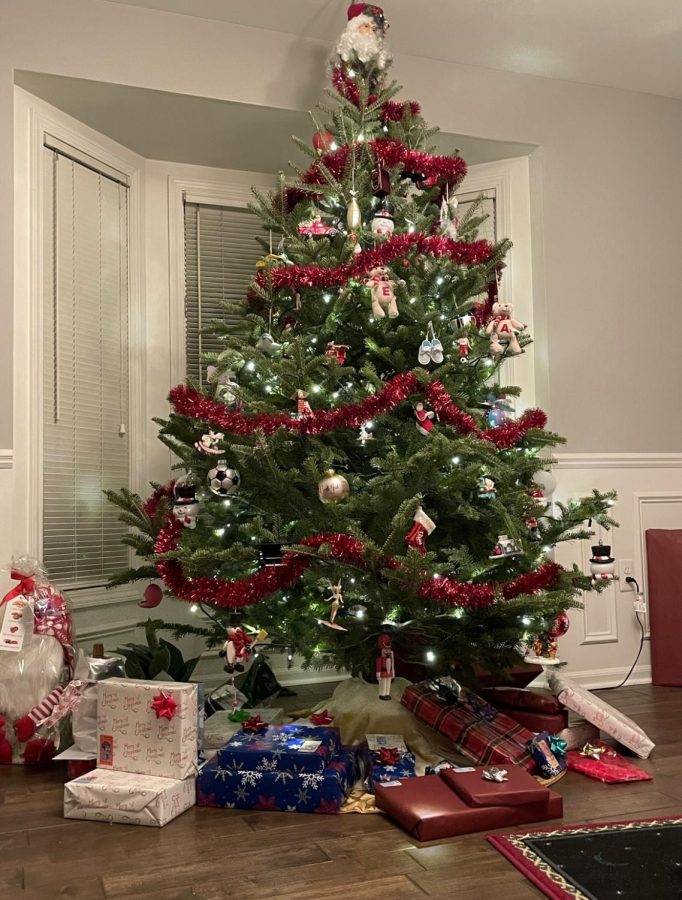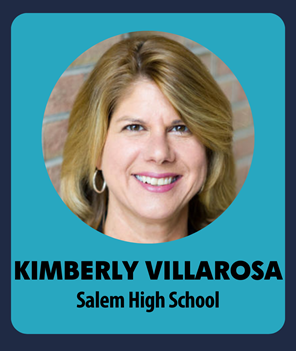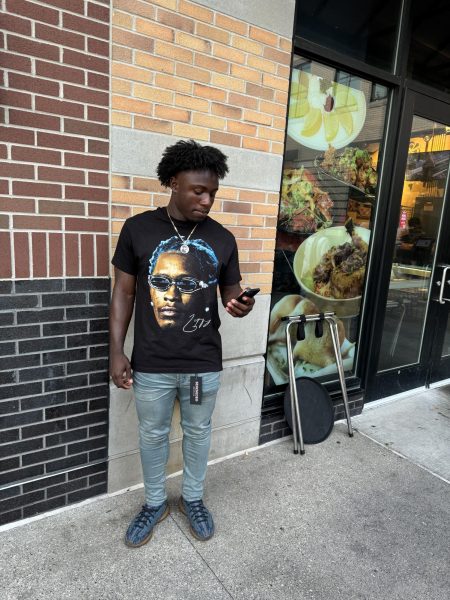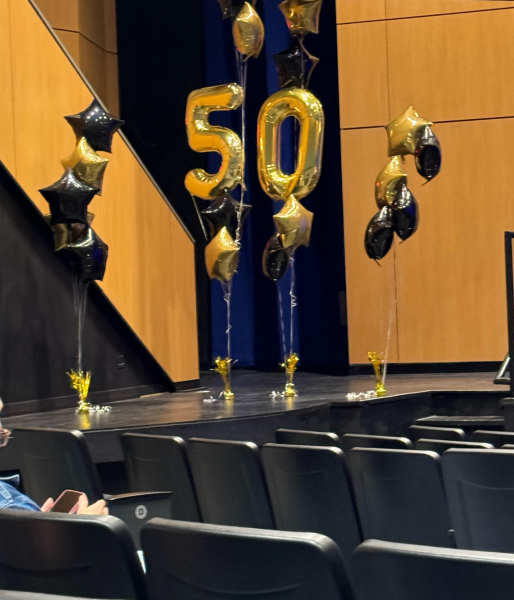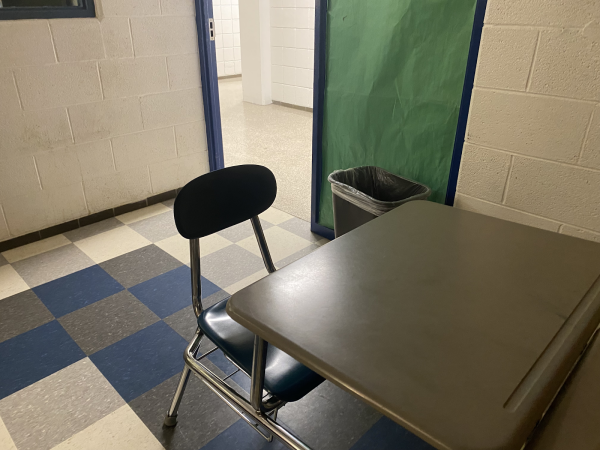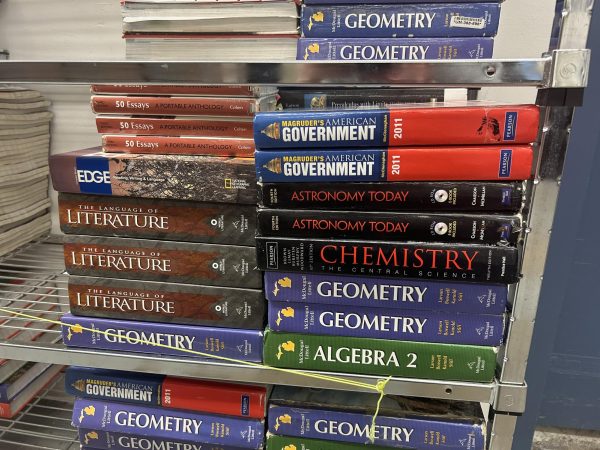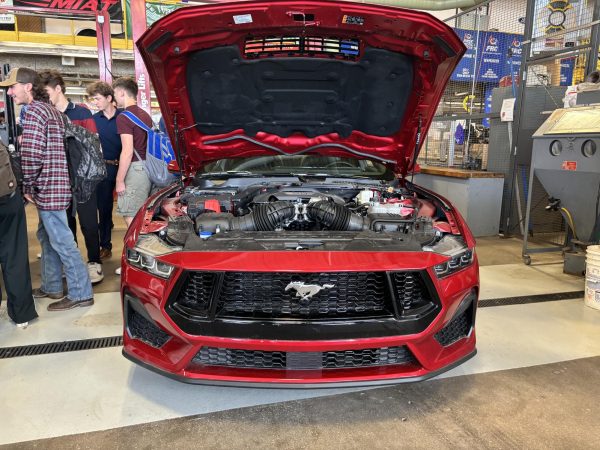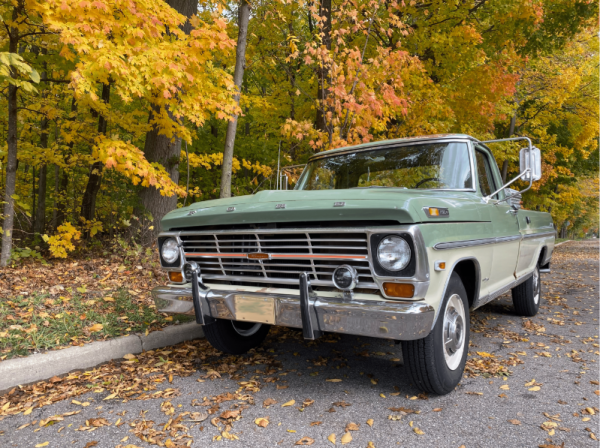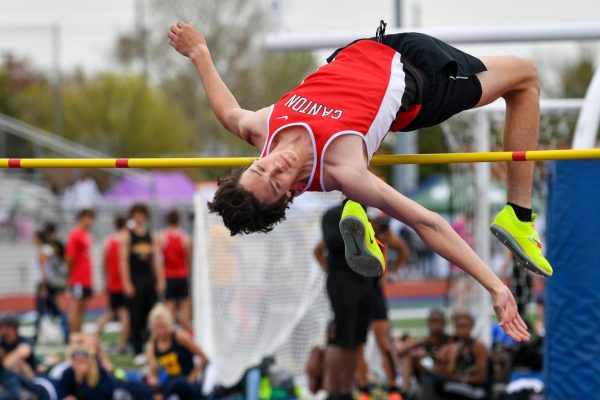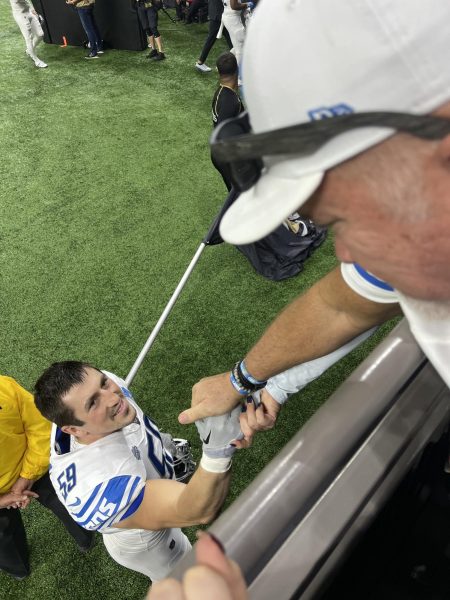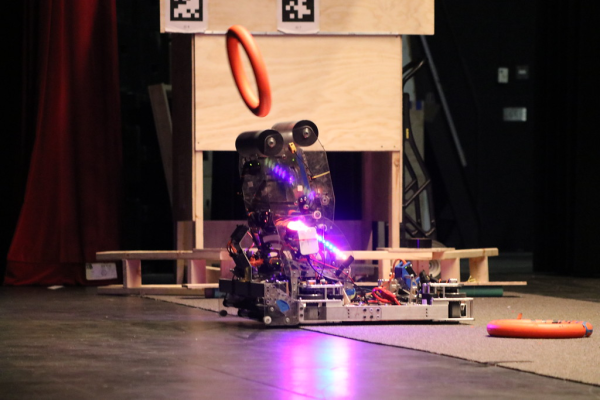Diverse community at P-CEP celebrates variety of winter holidays
A decorated Christmas tree represents one of many Christmas traditions.
As snow glistens on the ground and people bundle up with knit scarfs and gloves, the Plymouth-Canton campus’ atmosphere emanates holiday spirit.
Students and staff at the Park represent numerous cultures and backgrounds, producing a vibrant community that celebrates various holidays during the winter season.
Nabeeha Jalali, Salem sophomore, describes the Islamic holiday of Eid, a celebration for the end of Ramadan. Although Eid depends on the lunar calendar, it sometimes takes place during the winter.
“The night before, called Chand Raat, families and friends get together to make preparations for Eid by putting on henna and decorating our houses,” said Jalali. “On the actual day of Eid, we get dressed in fancy, cultural clothing and start our day by going to the mosque. The rest of the day is full of gatherings, food, gift-giving, and other celebrations.”
Jalali’s favorite customs include seeing her friends and family, on top of receiving Eidi, or gift money.
Many people aren’t aware of Chinese New Year, a celebration for the commencement of the new year on the Chinese lunisolar calendar. However, David Huang, Salem sophomore, says eating traditional food such as dumplings and noodles is a significant aspect when celebrating the holiday.
According to Gallup, over 90% of Americans celebrate Christmas, as clearly portrayed by stores filled with reindeer blow-ups and festive music. Though Christmas is commonly associated with Christianity to celebrate the birth of Jesus, many people all over the world celebrate the holiday without any religious correlation.
Cullen Orris, Plymouth junior, adheres to Christmas customs with his family. “We go to my grandparents’ house and exchange presents,” and “put up a Christmas tree, stockings, mistletoe, and we usually eat turkey for dinner.”
Enrique Levario Salazar, Salem student, Alan Gerardo Flores Reyes, Canton student, and Brenda Belanger, Salem Spanish teacher, provided insight to winter holidays celebrated in Spanish-speaking countries.
Reyes is from Mexico and claims that Christmas is an important holiday celebration throughout his culture because the dominant religion in Mexico is Christianity.
On top of decorating with lights, nativity scenes, and Christmas trees, Reyes mentioned the cultural food he eats during the holidays. “We eat turkey, mashed potatoes, and all that stuff, but we like to add Mexican food, you know, like tamales, churros, and burritos.”
Following Christmas is Las Posadas, a commemoration of the journey of Joseph and Mary from Nazareth to Bethlehem and the holiday known as Los Reyes Magos, or Three Kings Day, follows Christmas.
Three Kings Day takes place on January 6 and signifies the three kings who brought gifts to Jesus when he was born. Small gifts are exchanged and Rosca de Reyes is used.
“Rosca de Reyes is when there are five or six plastic baby Jesuses in sweet bread and if you find one, you need to bring tamales to the gathering during Easter,” said Salazar.
Later in the winter season, people throughout the world celebrate New Year’s on January 1. Friends and family gather to party and watch the ball drop at midnight, usually utilizing fireworks and music.
Sophia Werner, Salem junior, enjoys, “spending time with relatives I don’t usually get to see” during the New Year’s time.
Belanger described the Spanish tradition of las doce uvas de la suerte, or the twelve grapes of luck. During the last twelve seconds of the countdown to the new year, “you eat a grape per second and think of your wants for the new year,” said Bellanger.
Other popular winter holidays celebrated at the Park include Hanukkah and Kwanzaa.
Hanukkah, also called the Festival of Lights, starts November 28 and ends December 6 and is on the lunisolar calendar. The Jewish holiday commemorates the recovery of Jerusalem and the Second Temple. The menorah has nine candles that are lit each day to celebrate. Other traditions include playing with a dreidel and giving gifts.
Kwanzaa is celebrated from December 26 to January 1. The holiday celebrates African American culture with reflection, lighting candles and assembling a cultural display.
The various and diverse holidays celebrated at P-CEP extend to every culture and produce an exigent cheerful holiday spirit at the Park that lasts throughout the winter season. Each of the holidays has its own unique aspects, but they all create a united atmosphere, with “seeing friends and family” a favorite part for all celebrations.
Your donation will support the student journalists of Salem High School - MI. Your contribution will allow us to purchase equipment and cover our annual website hosting costs.


